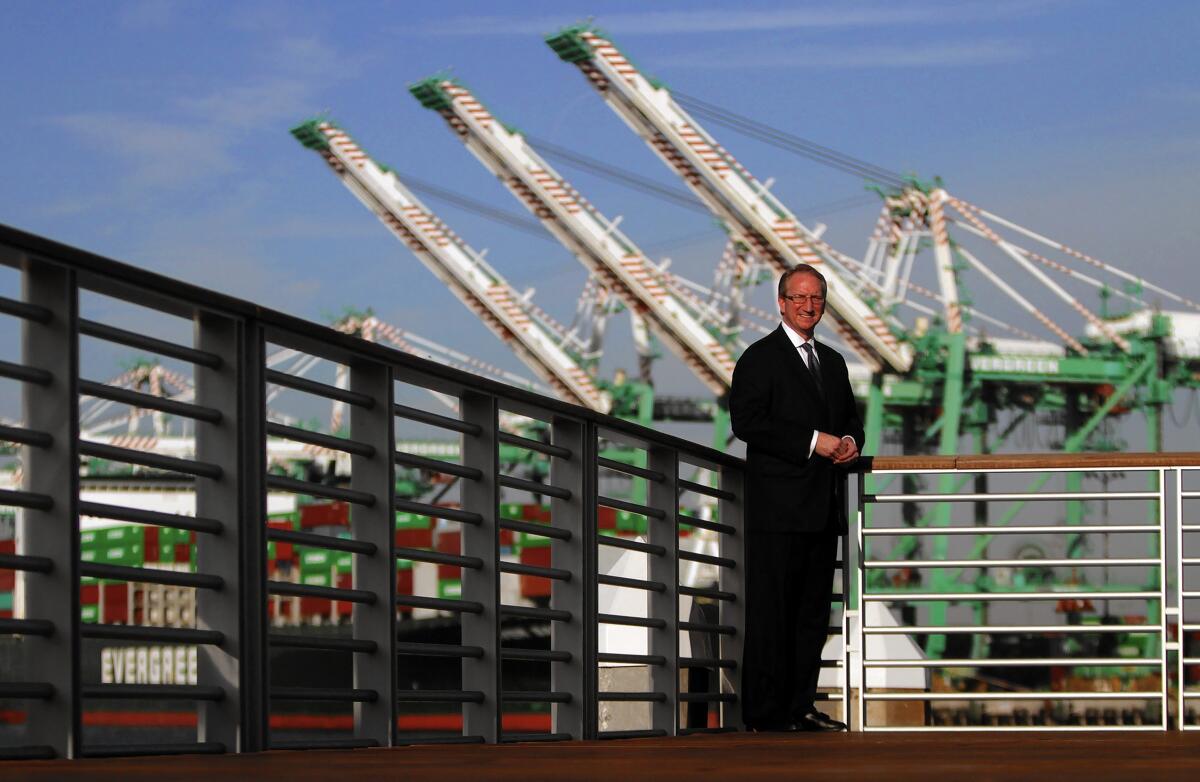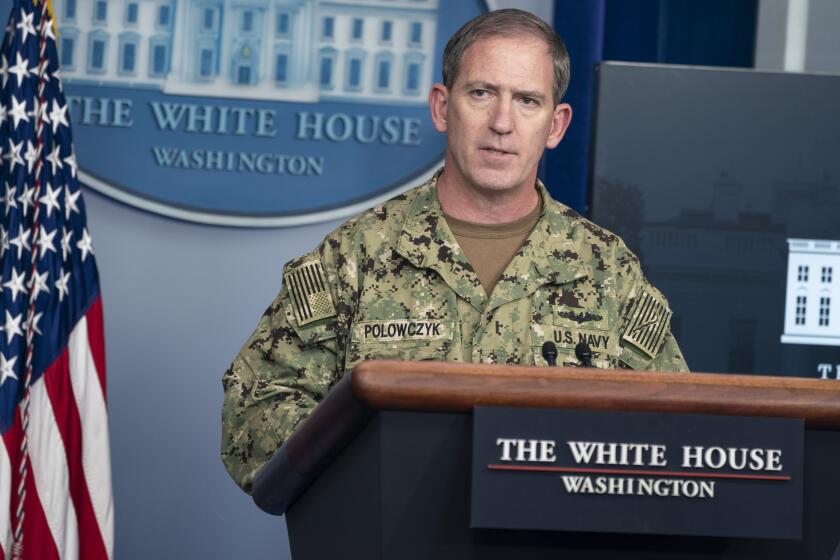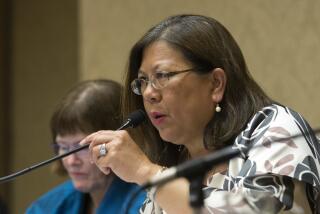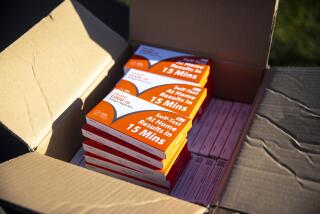Fed up with scammers, Los Angeles moves to create clearinghouse for medical supplies

- Share via
Faced with dwindling supplies and urgent need, Los Angeles is moving to create its own real-time clearinghouse of medical goods to help hospitals buy critical gear as the coronavirus crisis intensifies.
For weeks, as COVID-19 patients have flooded hospitals in California and the United States, medical workers on the front lines have been left without basic protective gear like masks and gowns. Federal supplies have been slow to roll out, and state resources have not been enough.
Hospitals, nursing homes, clinics and even private doctors are scrambling to find their own supplies, but the marketplace has become flooded with fraudulent sellers and inflated prices, leaving many medical providers stymied not just by a lack of items to buy, but by bad actors preying on their desperation.
“We’ve all heard the stories across the country of people battling it out to get masks, to get equipment, to get some of the respirator ventilators that we need,” Mayor Eric Garcetti said at a news briefing Tuesday. “All of these things have made it difficult for everyday hospitals, businesses, front-line workers to get what they need.”
Last week, Garcetti tapped the head of the Port of Los Angeles, Gene Seroka, in an attempt to leverage city resources to sort through the chaos. On Tuesday, Garcetti and Seroka announced the city was launching a website, lovla.org, that will allow sellers vetted by the city to list their goods, and allow local medical facilities to find supplies and see inventories in real time.
“There are plenty of opportunists out there,” Seroka said. “We’ve got to sift through all of that to see if the people we’re dealing with have their interests aligned with us, to try to help those who are medically ill.”
This week, a healthcare union was the latest victim of scammers, after it believed it had found a source of 39 million N95 masks, only to later discover there was a problem with the seller. The masks never materialized, sparking a federal investigation. Medical professionals across the state have said they have been inundated with false offers, and lack the capacity and expertise to sort through them.
As hospitals battle the coronavirus, they’re baffled as the Trump administration seizes hard-to-stock medical supplies.
Seroka said his team of about 18 volunteers has spent the week vetting about 70 sellers, focusing on five items local hospitals have said are most needed: N95 respirator masks and surgical masks; gowns; face protection; ventilators; and equipment used for intravenous drips. The city plans on using its buying power to negotiate for buyers and is searching for new suppliers that have switched to producing medical gear in recent days.
“We can’t fulfill everything, but we’re simply trying to build stockpiles and create yet another avenue for the hospitals who are in need of these products,” Seroka said. “We’ve got to hit some big wins fast.”
On the backend, Seroka said the city will leverage the technology and expertise of the port, which moved nearly $300 billion in cargo last year and is the busiest port in the Western Hemisphere, to track cargo to speed deliveries, and ensure that the city isn’t buying goods out from under the hospitals it’s trying to help.
“I don’t want to get into a situation where I am trying to buy gloves but I’ve stepped over three hospital companies to get to them,” he said.
California also launched a website this week aimed at addressing the supply crisis, but that effort largely is for sellers and those wishing to donate goods.
Nick Vyas, executive director of the Marshall Center for Global Supply Chain Management at USC, said Los Angeles did have buying and logistics resources that could help with supply problems, but cautioned that it would still have to fight for goods against larger players, limiting its effectiveness.
“It’s going to have to compete with the state, other states and the federal government,” Vyas said. “The problem is everybody is competing for finite resources.”
More to Read
Sign up for Essential California
The most important California stories and recommendations in your inbox every morning.
You may occasionally receive promotional content from the Los Angeles Times.













